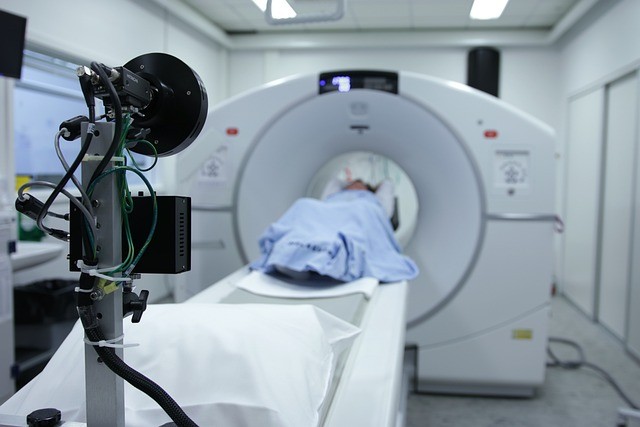Artificial Intelligence (AI) has the potential to revolutionize healthcare by enhancing medical diagnosis, treatment, and patient care. Here are some ways AI is making a significant impact in these areas:
1. Medical Diagnosis:
- Faster and Accurate Diagnoses: AI algorithms can analyze large volumes of medical data, including patient history, lab results, imaging scans, and genetic information, to quickly identify patterns and provide accurate diagnoses. This can lead to faster treatment decisions and improved patient outcomes.

- Early Disease Detection: AI can help detect diseases at an early stage by analyzing subtle changes in patient data that might be missed by human clinicians. For example, AI algorithms can assist in identifying early signs of cancer from medical images.
- Personalized Medicine: AI can analyze individual patient data to tailor treatment plans based on the patient’s unique genetic makeup, medical history, and lifestyle factors. This can lead to more effective and targeted treatments.
2. Treatment Planning and Drug Discovery:
- Drug Development: AI can accelerate the drug discovery process by simulating the effects of potential drugs on biological systems, predicting drug interactions, and identifying promising compounds for further testing.
- Treatment Optimization: AI can analyze patient data to recommend optimal treatment options based on evidence-based guidelines and the latest medical research. It can also consider patient preferences and potential side effects.
3. Remote Monitoring and Telemedicine:
- Remote Patient Monitoring: AI-powered wearable devices and sensors can continuously monitor patient health parameters, such as heart rate, blood pressure, and glucose levels. The data is then transmitted to healthcare providers for real-time analysis and intervention.
- Telemedicine Support: AI-driven virtual assistants can facilitate telemedicine consultations by gathering patient information, assisting in preliminary assessments, and helping doctors make informed decisions during remote consultations.
4. Medical Imaging:
- Image Analysis: AI algorithms can analyze medical images, such as X-rays, MRIs, and CT scans, to identify abnormalities, tumors, fractures, and other conditions. This can help radiologists detect issues more accurately and efficiently.
- Radiology Assistance: AI can serve as a second opinion for radiologists by flagging areas of concern or helping prioritize cases that require immediate attention.
5. Workflow Optimization:
- Administrative Tasks: AI can automate administrative tasks, such as appointment scheduling, billing, and claims processing, allowing healthcare professionals to focus more on patient care.
- Clinical Documentation: AI-powered tools can convert spoken language into text, helping doctors quickly create accurate patient records, saving time and reducing the risk of errors.
While AI holds great promise for transforming healthcare, there are challenges to consider, including data privacy, regulatory compliance, and ethical concerns. Ensuring that AI systems are transparent, trustworthy, and ethically deployed is essential for responsible AI adoption in healthcare. Collaborations between AI experts, healthcare professionals, and regulatory bodies are crucial to harnessing the full potential of AI while ensuring patient safety and ethical considerations are prioritized.









